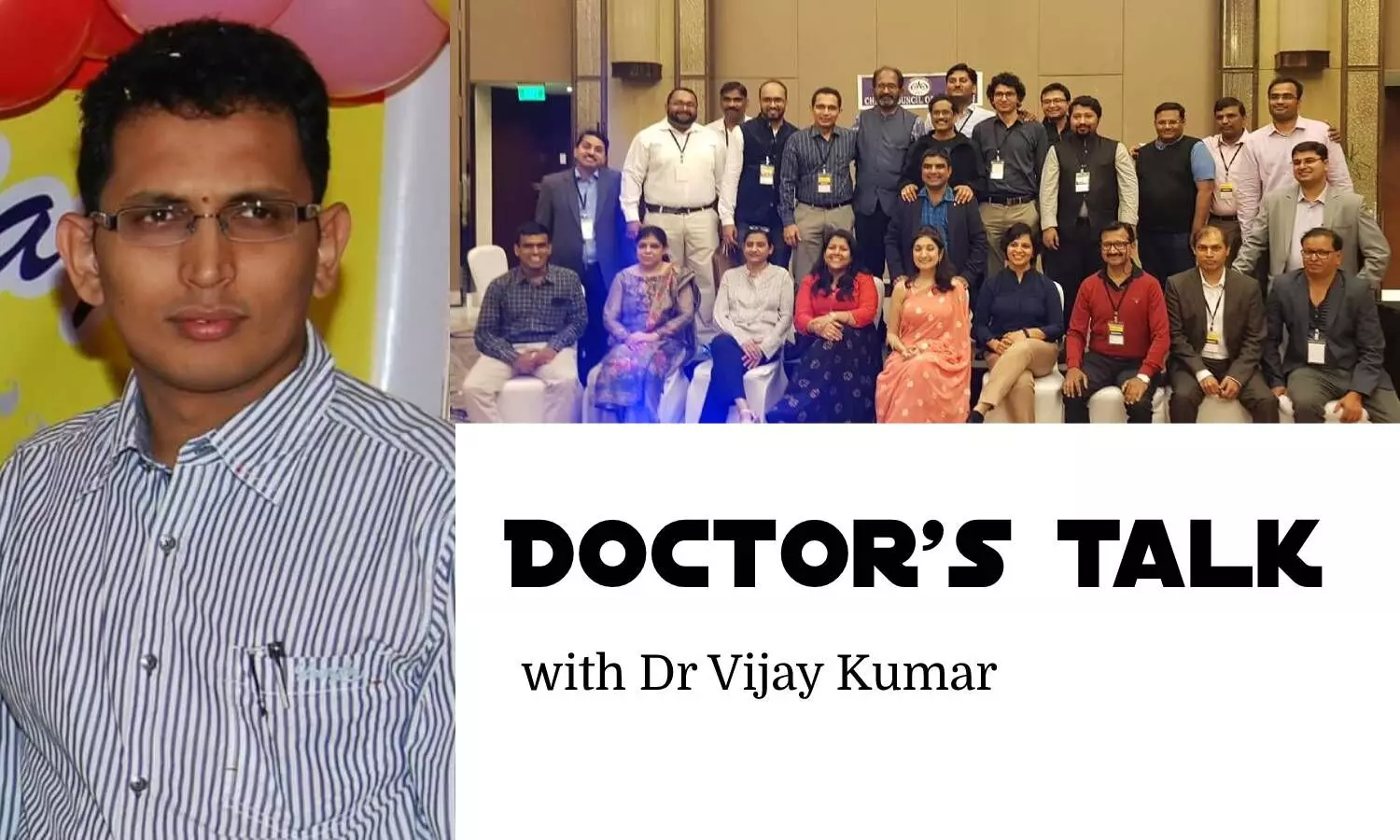Hyd pulmonologist Dr Vijay Kumar Chennamchetty believes patients must be treated with empathy
A doctor must be humble and best at his work – this motto drives Dr. Vijay Kumar Chennamchettty, a senior pulmonologist at Apollo Hospitals, Hyderabad, who believes that empathy is an important aspect of the profession.
By Kaniza Garari
Hyderabad: A doctor must be humble and best at his work – this motto drives Dr. Vijay Kumar Chennamchettty, a senior pulmonologist at Apollo Hospitals, Hyderabad, who believes that empathy is an important aspect of the profession.
Patients must be treated on humanitarian principles, a trait that needs to be revived and relearned from time to time. He believes that at every level it is important to look from the patients' perspective for better outcomes.
This thought was ingrained in him while he was training for critical care at Sundaram Medical Foundation in Chennai where the motto was to see yourself or your family member in the patient and then treat them. This appealed to him as his decision to become a doctor came from an event where wrongful treatment had caused his mother a lot of pain. The incident was a game-changer in his life as the family from Tirupathi had to change the doctor to cure her.
Dr. Vijay Kumar says, "I was aspiring for civil services but that one event led me to become a doctor. I was determined that I would be a good and empathic doctor, and I have solely worked towards the same."
Missed gold medals by a mark or two
A hard worker, he aspired to top the batch but missed it by a mark or two. He completed his MBBS from Dr NTR University of Health Sciences in 2004 and pulmonary medicine from Andhra Medical College Visakhapatnam in 2008.
"I was always in the race for the top position but I missed it by a mark or two. The AMC years in Vizag are a golden period of my medical studies. I always wanted to be the first in bedside practice, learning new procedures and would ask my professors to teach me the latest techniques that were being practiced in pulmonology. I especially thank my professors Dr. G. Rabindra Babu, Dr. Usha Rani, Dr. Sunil Kumar, and Dr. Prem Kumar who are the best teachers," he says.
Trained in critical care
To be a good physician, he says handling emergencies and managing patients are the most important. He would manage emergency and critical care after completing his work in the pulmonology section. He got a diploma in critical care from the Society of Critical Care Medicine in 2010. His training in Chennai and Dallas helped him master and learn new techniques in minimum invasive thoracic surgery, lung transplant, pulmonary function test, and sleep disorder treatments.
Pandemic led to treating and teaching
The outbreak of Covid-19 in Wuhan, China, had him alert as reading new research papers and changing guidelines became mandatory. He would be up till late at night reading the latest developments across the world and trying to understand how it could pan out in India. This was the time when the motto was recovery for the patients and teaching chest physicians the new and ever-changing guidelines.
"I discharged a patient of black fungus in the first wave of Covid-19 without surgery. The patient was under my treatment in the intensive care unit for 100 days but went home completely recovered. There were no other complications," says Dr. Vijay Kumar.
The pandemic caused a lot of hardships, from managing thirst and breathing in PPE kits to fear to monitoring moderate and severe patients online.
"There were times when I saw a patient recover one day and collapse the next. It was the most difficult time and I always had a prayer on my lips as it was the most unpredictable time for the fraternity," says Dr. Kumar.
With chest physicians narrating their experiences to each other online, he decided to hold training sessions that imbibed the latest research in pulmonology. "The use of steroids was most in the community for recovery but it had severe after effects. To educate the physicians and make them use the available medicines judiciously, a protocol was designed based on the symptoms. I trained 800 physicians from Kashmir to Kanyakumari under the Chest Council of India. I did Facebook and Zoom live shows every Sunday to answer the queries of patients on Covid-19. My shows were watched across five continents. This helped a lot of people and it was the most satisfying aspect."
His mother, wife, and children helped him record videos and operate digital platforms as he shuffled between treating his patients and dispelling myths about Covid-19. "It was a time of reaching out to patients directly with the right information and one realized that they just wanted to hear from it from a doctor," he says.